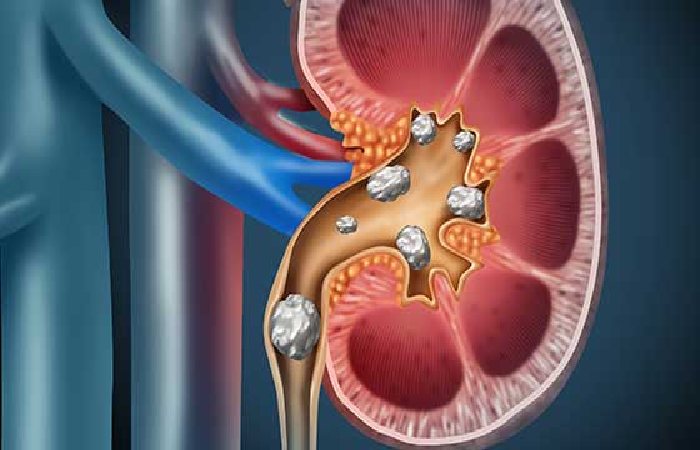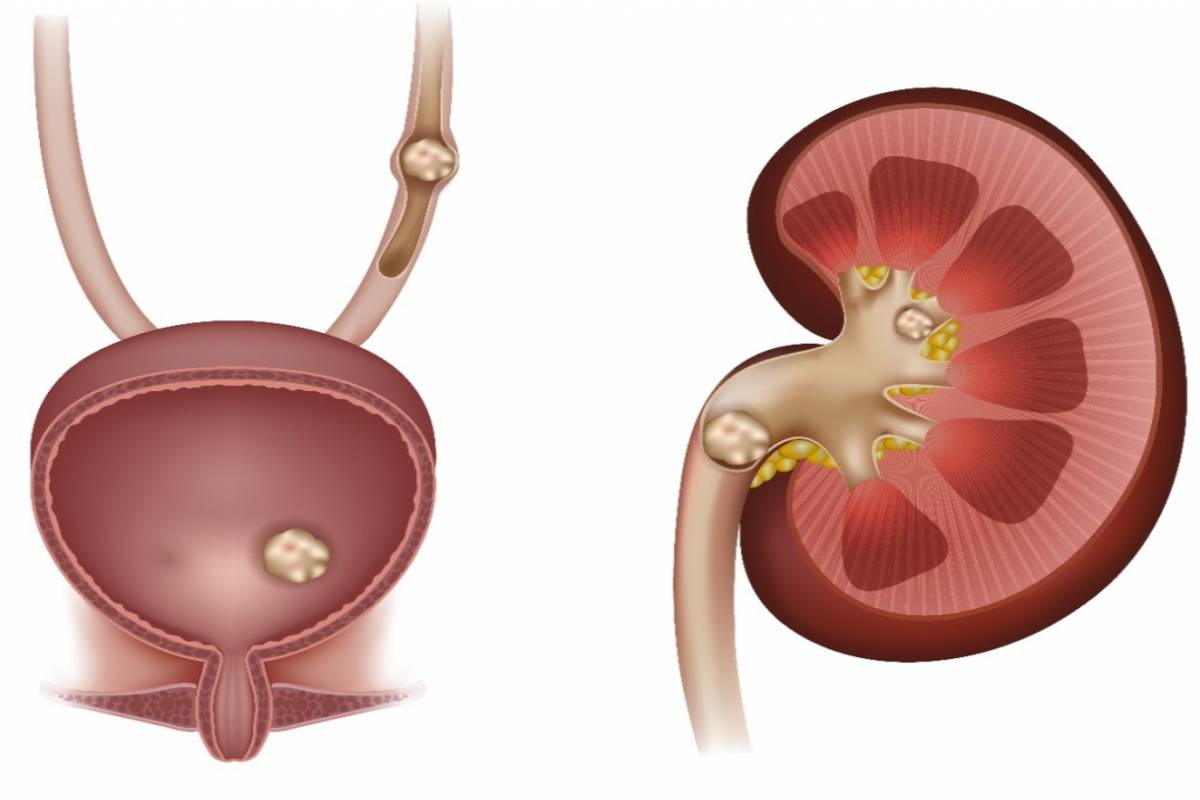Overview Kidney stone
Kidney stones are solid credits that form in the kidneys and are often painful to remove.
Kidney stones are hard sums of minerals and acid salts that stick to concentrated urine. They can be painful to pass through the urinary tract but regularly don’t cause lasting damage.
The most common symptom is severe pain, usually in the abdomen, often accompanied by nausea.
Treatment includes pain medication and drinking plenty of water to remove the stone. Larger stones may require removal or discontinuation of medical procedures.
Common symptoms of kidney stones include sharp, painful cramps in the back and sides. This feeling often spreads to the lower stomach or groin. The pain usually starts quickly and comes in waves.
What are kidney stones?
Kidney stones are solid structures made of crystals. Kidney stones usually form in the kidneys. However, they can develop in any part of the urinary tract, which consists of:
- kidneys
- ureter
- Bladder
- urethra
Kidney gravels are one of the most painful diseases. The causes of kidney stones differ depending on the type of stone.
Types of kidney stones
There are two main types of kidney gravels: calcium gravels and calcium-free stones,” said Ganesh Shidham, MD, assistant professor of nephrology at Ohio State University’s Wexner Medical Center in Columbus. According to a July 2015 article in Clinical Nutrition Research and Other Research, high concentrations of the mineral calcium in urine account for 70 to 80 percent of all kidney stones. Calcium can bind to other substances in the urine, such as oxalates and phosphates, to form stones.
Kidney stone factors
Some people have higher kidney stones than others. For example, men are more expected to have kidney stones than women, as are people with a family history of kidney stones, persons with a history of urinary tract infections, and those who have had kidney stones in their bodies.
You are also more likely to develop kidney stones if you take certain medicines, including diuretics, calcium-based antacids (medications that lower stomach acid), topiramate (an anticonvulsant), and indinavir (a medicine for HIV). Calcium and vitamin C supplements can also increase your risk of kidney stones.

